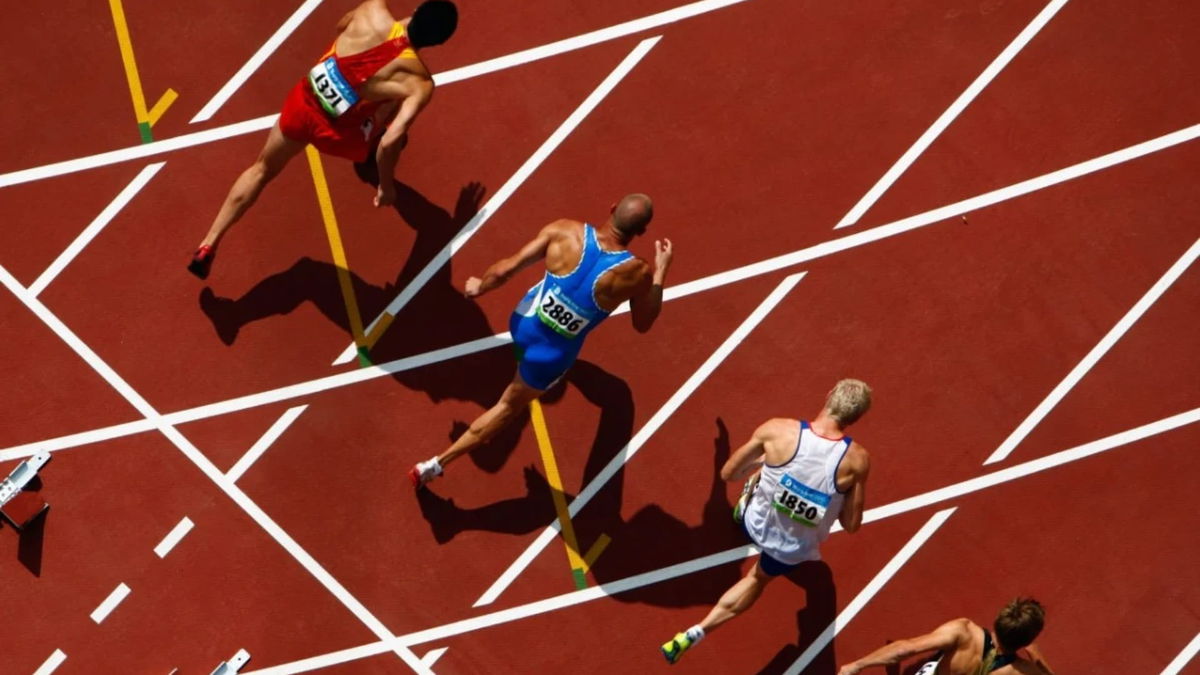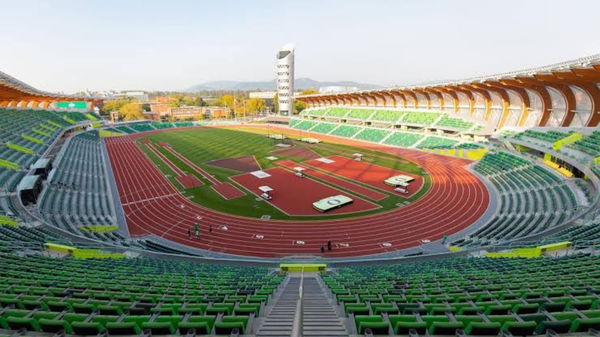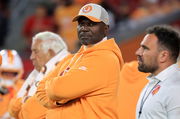

The Diamond League has been a source of frustration for track and field fans for a while, with issues like financial disparity and lackluster broadcasting stealing the spotlight. After the Zurich meet wrapped up on September 5, all eyes are now on the upcoming Allianz Memorial Van Damme in Brussels. But before that, track legend Carl Lewis threw some serious shade on September 3, saying, “I’m not a fan of the Diamond League.” He didn’t hold back, either, blasting the league for being “about collusion and lowering athletes’ control and pay” and claiming it “needs to go.”
Watch What’s Trending Now!
Lewis’s comments have really set social media ablaze, and the conversation has only grown hotter. The Diamond League’s top prize is significantly lower. Except for the Wanda Diamond League Champion, who receives a larger amount, the winner of a standard Diamond League event takes home just $10,000.
ADVERTISEMENT

Now, the focus has shifted to a pressing issue: broadcasting. The Diamond League is having a tough time reaching its target audience of 18- to 34-year-olds, with many finding the broadcasts dull and draining. Fans are demanding a major overhaul. The debate is intensifying, with suggestions ranging from spicing up the broadcasts to reworking the whole approach. The goal? To keep fans engaged, make the league more financially viable, and possibly even lower the costs of broadcasting channels.
ADVERTISEMENT
Recently, a Reddit user vented their frustration with the Diamond League, posting, “Diamond League is the most frustrating sporting franchise to support. It’s almost as if they hate money. Why is it so hard to watch and support? Why can’t they simplify the payment process for full races and highlights?”
In response, one fan offered a workaround, saying, “Are you in the States? I grabbed Peacock when they had a deal for $2 a month for six months; after that, it goes up to about $6, which isn’t terrible.” Currently, a Peacock subscription costs $5.99/month or $59.99/year. Despite these options, dissatisfaction remains high. This glimpse into the ongoing frustrations highlights a broader issue: fans are feeling the pinch from rising costs and a service that doesn’t quite meet their needs, though there might be changes ahead to tackle these concerns.
ADVERTISEMENT
Track and field fans fume over Diamond League’s move to FloTrack
One more fan pointed out, “Unfortunately Flotrack has the US rights starting next year. Real shame. I feel like track and field popularity in the US gained a lot of momentum this Olympic cycle, and putting it on a niche streaming site is going to make that momentum come to a screeching halt.” Well, earlier this year, FloTrack announced it had secured the US broadcast rights for the Diamond League starting in 2025.
This means that the 2024 Diamond League season, which started on April 20 in Xiamen, China, is the last year broadcast on NBC/Peacock, which has covered the series since 2017. While NBC will retain rights for the Prefontaine Classic, all other Diamond League meets, including the final, will be shown exclusively on FloTrack next year. But why aren’t people happy with it?
ADVERTISEMENT
There are two main reasons for this backlash:
Top Stories
Forced to Leave FOX, Cowboys Legend Troy Aikman Says ESPN Is Like ‘U.S. Government’ & Clearly Distinguishes the Two Networks

Todd Bowles Points Fingers at Baker Mayfield & Co. in a Strong Statement That Could Get Him Punished After Bucs Loss

What Settlement Agreement Have Michael Jordan & NASCAR Reached? Everything to Know From Evergreen Charters to Payout

Arthur Blank Makes Firing Decision on Raheem Morris After Falcons HC Lands on Hot Seat

Cowboys Legend Troy Aikman Teases NFL Comeback After Airing FOX’s Dirty Laundry

Charley Hull Opens Up on Traumatic Divorce from Ex-Husband for the First Time Ever

- Higher Costs for Fans: A FloTrack subscription costs $29.99/month or $149.99/year, compared to Peacock’s $5.99/month or $59.99/year. Fans are frustrated about paying significantly more for the same content.
- Limited Reach: FloTrack’s exclusive streaming model will likely limit the visibility of track and field in the US. Peacock had 31 million subscribers at the end of 2023, offering broader exposure. FloTrack, with a much smaller audience, restricts access to the sport and reduces its potential to attract casual fans. According to estimates, FloTrack had around 243,400 visitors in March 2024, a fraction of the traffic of competitors like LetsRun.com.
Another fan added, “I don’t see how gst will ever succeed. 4 meets a year, made up rules, silly team nonsense. Not a hope.!remindme 1 year”. One more added, “Because its run like a mom and pop and they want to keep control. The few folks in charge dont want more money and dont want someone else getting to make decisions.”
ADVERTISEMENT

ADVERTISEMENT
One final fan added, “Unbelievably poor decision by World Athletics/Wanda or whoever run DL… and maybe Comcast/Peacock should have made more an effort to keep DL assuming the rights to broadcast weren’t much. I would have thought they would have taken a chance on the Olympics (post COVID) helping increase T&F interest in the US… which I suspect was reasonably successful (admittedly from a very modest base). Comcast/Peacock could have promoted DL during Olympics (along with other programming I had zero interest in). Instead some incredibly niche, expensive streaming service (owned by Wanda I believe) is the way they went.”
World Athletics does not control the Diamond League. Instead, it’s a Swiss company called Diamond League AG, with World Athletics and the 15 Diamond League events as shareholders. Starting in 2025, Infront Sports & Media will take over the international broadcasting rights for the Diamond League. Well, starting in 2025, Infront Sports & Media will handle the international broadcasting rights for the Diamond League. Infront paid a substantial amount for these rights, aiming to sell them to networks like NBC in the US or the BBC in the UK.
This arrangement provides the Diamond League with financial security and simplifies its operations by avoiding the complexities of negotiating multiple contracts. Infront’s strategy is to profit by selling the rights for more than it paid, which means their focus is on the highest bidder rather than the network offering the broadest exposure.
ADVERTISEMENT
NBC, owned by Comcast—a giant with $121 billion in revenue in 2023—could have easily outbid FloSports for the rights if it saw value in the Diamond League. The decision to let these rights go to FloTrack highlights the current standing of the Diamond League in the US sports landscape. With that being said, is this frustration valid, and does it need to be addressed?
ADVERTISEMENT
ADVERTISEMENT
ADVERTISEMENT

